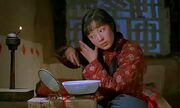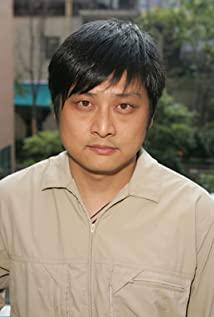"Hey, slow down." From the old man running with Er Ming, to the old man with Er Ming, Daming, and later, the three became two again, but the old man was gone.
The old man is an authentic Beijinger. He owns a bathhouse. Neighbors go to take a bath every day. They sit in the inner bath pool and chat about their parents. After one set was finished, half a day passed, and I lay down at the door, fighting crickets and playing two games of chess.
The old man was a warmhearted man. The neighbor quarreled with his daughter-in-law. He specially prepared a mandarin duck bath to resolve the knot between the two. This enthusiasm is linked to his silly son Erming, who is smart and cute. He helped the good friend who couldn't sing to overcome the psychological obstacle and sang his heart out.
The bathhouse is the collective memory of the northerners. "Bath" shows a difference, and the two stories connected in series are particularly exciting. Erming's mother is from Shaanxi. It is difficult to take a bath in that place, but a girl must take a bath before she gets married. Where does the water come from? A scoop of food for a scoop of water. For Shaanxi in that era, taking a bath meant bankruptcy. The second story elevates the concept of bathing, which is not just to cleanse the body, or a ritual expression. In Tibet, kowtow to the holy lake to take a bath, the road is a distance, the end and new life of things.
In the end, the clear water pool where Beijingers bathed was pushed by an excavator due to urban renovation. In the sunny bathhouse, Erming sang "My Sun" with "Dad" and "Dad".
View more about Shower reviews










